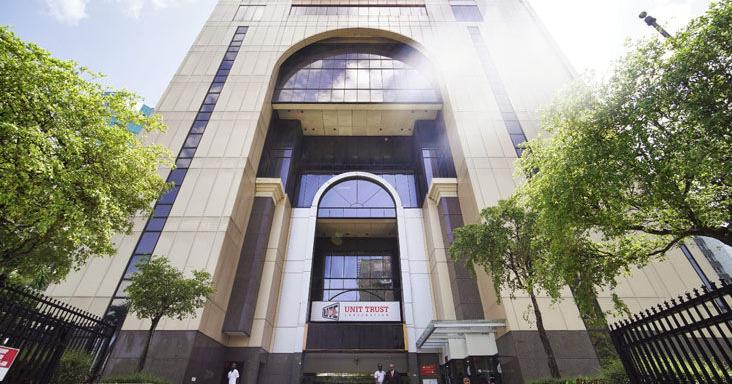By Andrew Maharaj,Joel Julien
Copyright trinidadexpress

BLOCKCHAIN tokenisation is being explored as a way to break down barriers to investing, increase operational efficiency, and attract new capital to the Caribbean, according to a new report from the Unit Trust Corporation’s investment team.
The report, “Tokenisation of Collective Investment Schemes: Opportunities and Challenges in the Caribbean Context,” examines the feasibility of tokenising Collective Investment Schemes (CIS), exploring regulatory, legal, and financial implications of a proposed tokenised fund.
Authored by Andrew Maharaj, Cedric Thompson, Lenice Lewis, Philip Williams, Savio Keith, Sharlene Dabideen, and Terry-Ann Bronte Tinkew, the report positions tokenisation as a potentially transformative tool for the Caribbean’s financial system.
What is a Collective
Investment Scheme?
According to the T&T Securities and Exchange Commission (TTSEC), a Collective Investment Scheme (CIS) is an investment vehicle where multiple investors pool capital to a create a professionally managed fund.
Investors receive units representing proportional ownership in the portfolio, entitling them to a share of the income generated. The structure allows individual investors to access a diversified range of assets that might otherwise be costly or difficult to manage independently.
CISs are generally classified as open-ended or closed-ended. Open-ended funds issue and redeem units continuously based on the Net Asset Value (NAV), typically calculated daily. Closed-ended funds, in contrast, issue a fixed number of units that trade on exchanges, with prices determined by market supply and demand.
CIS can also differ by asset focus and risk-return profile:
• Money Market Funds: Invest in high-quality, short-term instruments like treasury bills and commercial paper. These funds emphasise capital preservation and liquidity, appealing to risk-averse investors with short-term horizons.
• Income Funds: Focus on generating regular income through investments in government and corporate bonds and other fixed-income securities. They cater to conservative investors seeking stable yields with less focus on capital appreciation.
• Balanced Funds: Combine equities, fixed-income securities, and sometimes money market instruments to pursue both income and growth. With a moderate risk profile, these funds offer built-in diversification and are suitable for investors seeking long-term stability without active portfolio management.
According to the Central Bank of T&T’s latest annual economic survey, the total value of Assets Under Management (AUM) for all registered funds stood at $63,918.3 million in 2024.
The report noted net sales of $627.1 million for the year, reflecting $2,287.3 million in sales and $1,660.2 million in redemptions.
Vital role in Caribbean finance
Citing a 2022 working paper by Martina Regis, the report stated that CISs have “long played a vital role in the Caribbean’s financial ecosystem, providing individuals with the opportunity to pool resources and gain exposure to diversified portfolios managed by professionals.”
“In Trinidad and Tobago and across the broader Caricom region, CISs have traditionally served as key instruments for wealth creation and financial inclusion,” the TTSEC stated.
“However, limited access to investment products, legacy operational models, and regulatory constraints have often hindered their broader reach and effectiveness,” the report stated.
Citing an article posted by S&P Global, the report stated that in this context, the integration of emerging technologies, particularly tokenisation, is beginning to reshape the global financial landscape, offering a transformative opportunity for the Caribbean’s investment management sector.
“Asset tokenisation presents a promising, though institutionally demanding, method for modernising CIS, especially in small, open Caribbean markets characterised by high entry thresholds, illiquid secondary markets, and fragmented cross-border clearing systems,” the World Economic Forum stated
According to Britannica Money, tokenisation can significantly lower minimum investment sizes through fractional ownership, accelerate settlement cycles, and facilitate secondary trading to enhance liquidity in traditionally illiquid fund structures.
Tokenisation:
A Transformative Tool
The International Monetary Fund (IMF) defines tokenisation as the process of creating digital representations of assets on a shared, trusted, and programmable digital ledger. A digital token acts as a secure and immutable proxy for the underlying asset, embedding ownership rights directly within the token and enabling their transfer via updates to the ledger.
McKinsey & Company stated that assets may be tangible (e.g., real estate, art, commodities) or intangible (e.g., intellectual property, securities, or contractual claims).
The Committee on Payments and Market Infrastructures (CPMI) and the Bank for International Settlements (BIS) stated that tokenisation enhances automation and transparency by recording assets on programmable platforms.
According to the World Economic Forum (2025), tokenisation facilitates real-time asset transfers on shared ledgers, reducing settlement risk and increasing operational efficiency. Benefits include improved liquidity, transaction speed, transparency, lower costs, and reduced administrative burdens.
Blockchain and Smart Contracts
Tokenisation relies on blockchain, a decentralised digital ledger that records transactions across a peer-to-peer network, enabling participants to validate information without a central authority.
The World Economic Forum highlights blockchain’s potential to eliminate intermediaries and increase transparency by maintaining a collectively accessible, tamper-resistant transaction history. This structure ensures security, traceability, and integrity, making it well-suited for use cases across finance, logistics, and healthcare. It reduces fraud, error, and administrative costs while boosting operational accountability and trust.
Tokenizing CIS units involves converting traditional fund shares into digital tokens recorded on a blockchain. This process enhances efficiency, increases liquidity, and automates operational functions such as subscription, redemption, and reporting through the use of smart contracts.
Smart contracts are self-executing agreements coded onto blockchain networks. These contracts automatically enforce predefined conditions (e.g., “if X occurs, then trigger Y”) without manual intervention or intermediaries, according to PwC. They offer censorship resistance and immutability and are increasingly used in sectors like insurance and supply chains.
The World Economic Forum notes that smart contracts, when integrated with IoT systems, can automate data collection and validation processes. For example, in travel insurance, smart contracts could automatically trigger refunds upon verification of airline cancellations, reducing delays and manual claim processing.
The report stated that unlocking the potential of tokenised CISs in the Caribbean requires a coordinated effort across regulatory, operational, and market development domains.
Opportunities and Challenges
According to the report, tokenisation represents a transformative shift in the structure, distribution, and governance of investment products.
“By leveraging blockchain technology, tokenised CISs offer enhanced liquidity, operational efficiency, greater transparency, and broader investor access. These benefits hold particular promise for emerging and small capital markets such as those in the Caribbean,” it stated.
“However, realising this potential requires overcoming a range of regulatory, technological, and infrastructural challenges. Most Caribbean jurisdictions remain in the early stages of digital asset regulation, with only a few (such as the Bahamas and Cayman Islands) offering comprehensive legal frameworks for tokenised financial instruments. In countries like Trinidad & Tobago and Jamaica, while interest in fintech is growing, the absence of tailored digital asset legislation, limited blockchain infrastructure, and investor unfamiliarity continue to constrain meaningful adoption,” the report stated.
The report stated that despite these obstacles, a strategic and phased approach can lay the foundation for the safe and scalable integration of tokenised CIS within the region.
It said this includes enacting enabling legislation, piloting compliant fund structures through regulatory sandboxes, building partnerships with licensed custodians and fintech providers, and launching investor education initiatives to promote understanding and trust.
“Tokenisation is not a one-size-fits-all solution, but rather a powerful set of tools that, when properly adapted, can enhance the efficiency, inclusivity, and resilience of the Caribbean’s investment landscape. By taking deliberate, collaborative action, regional policymakers, regulators, and market participants can unlock new opportunities for capital formation and financial democratisation in the digital age,” the report stated.



